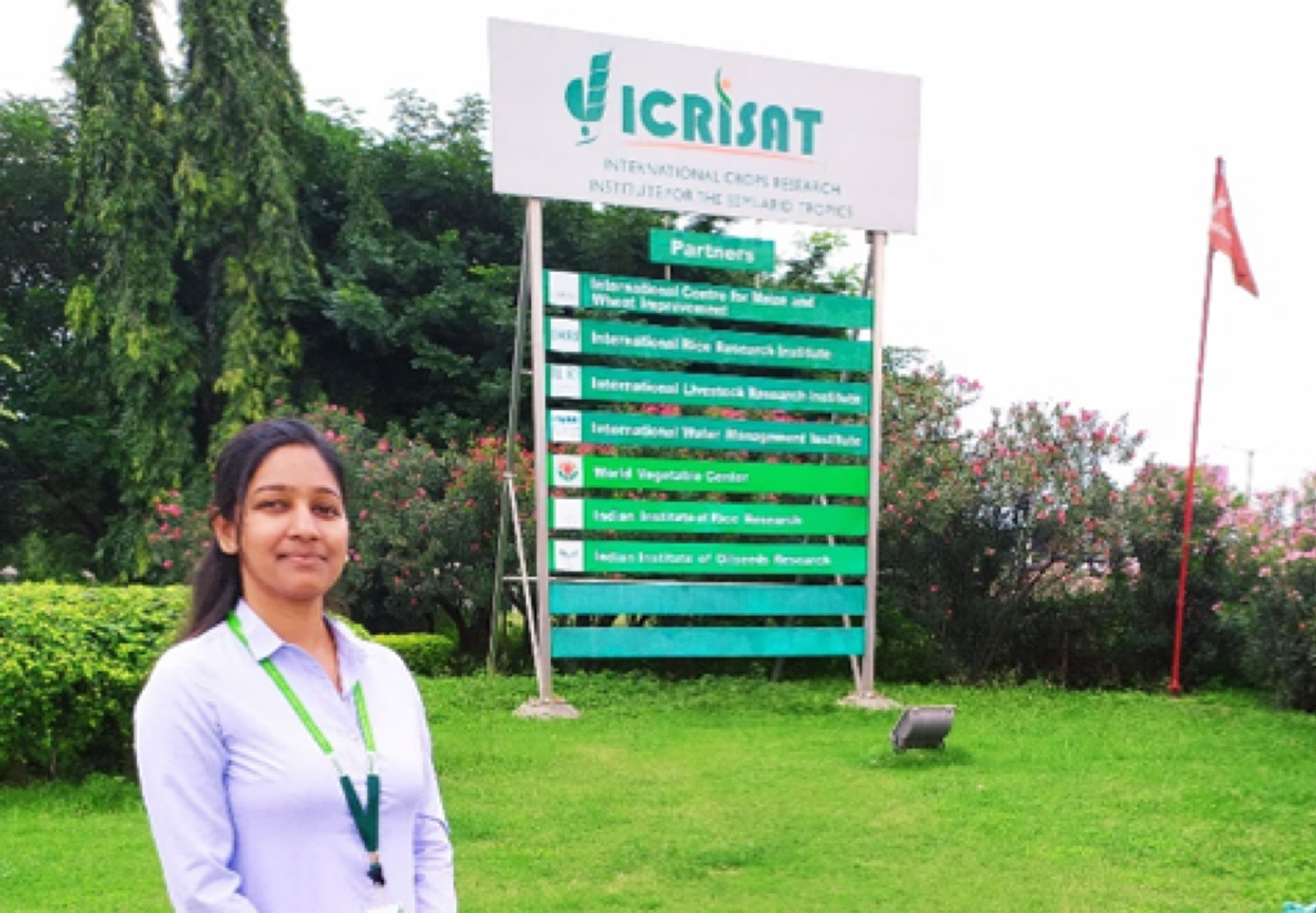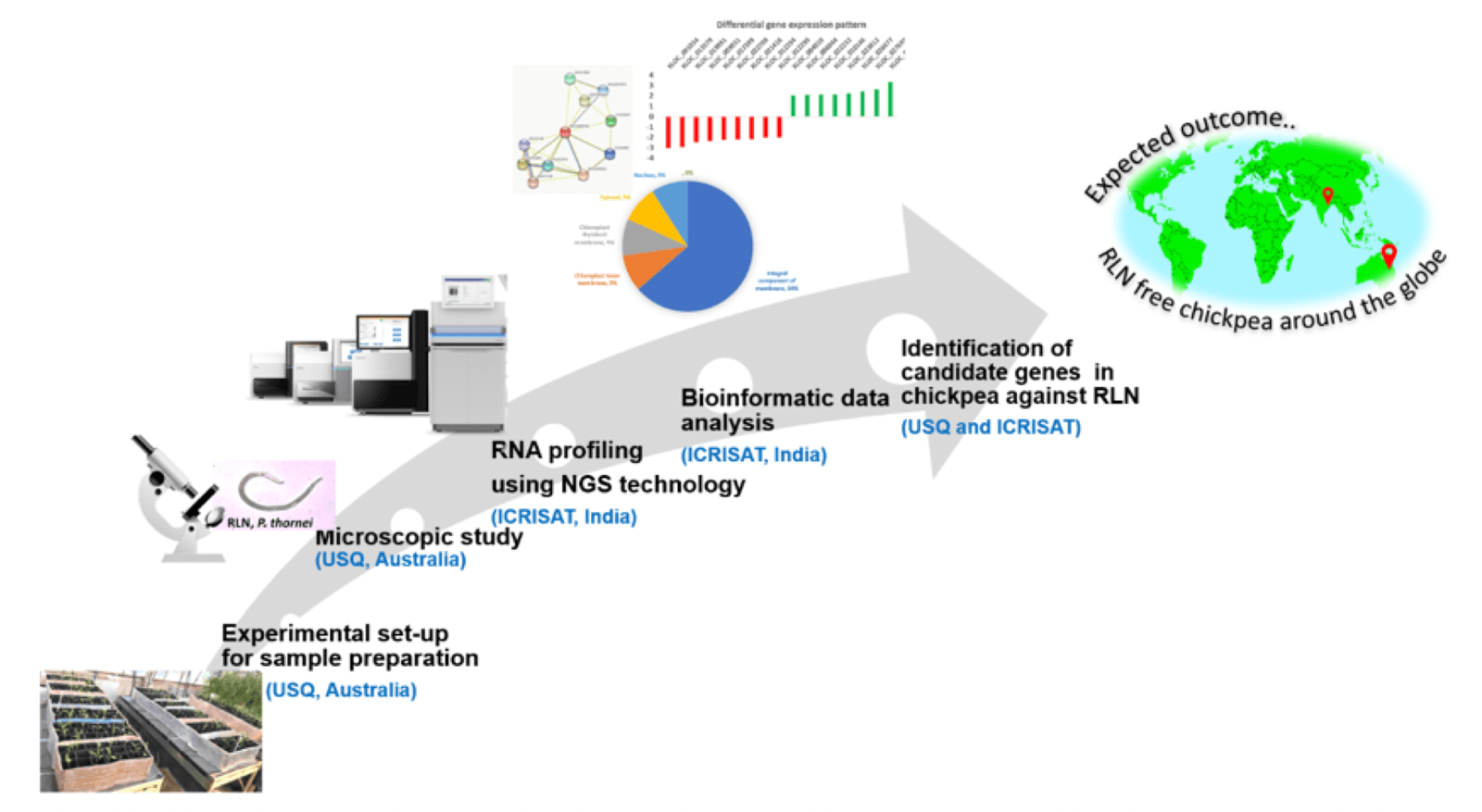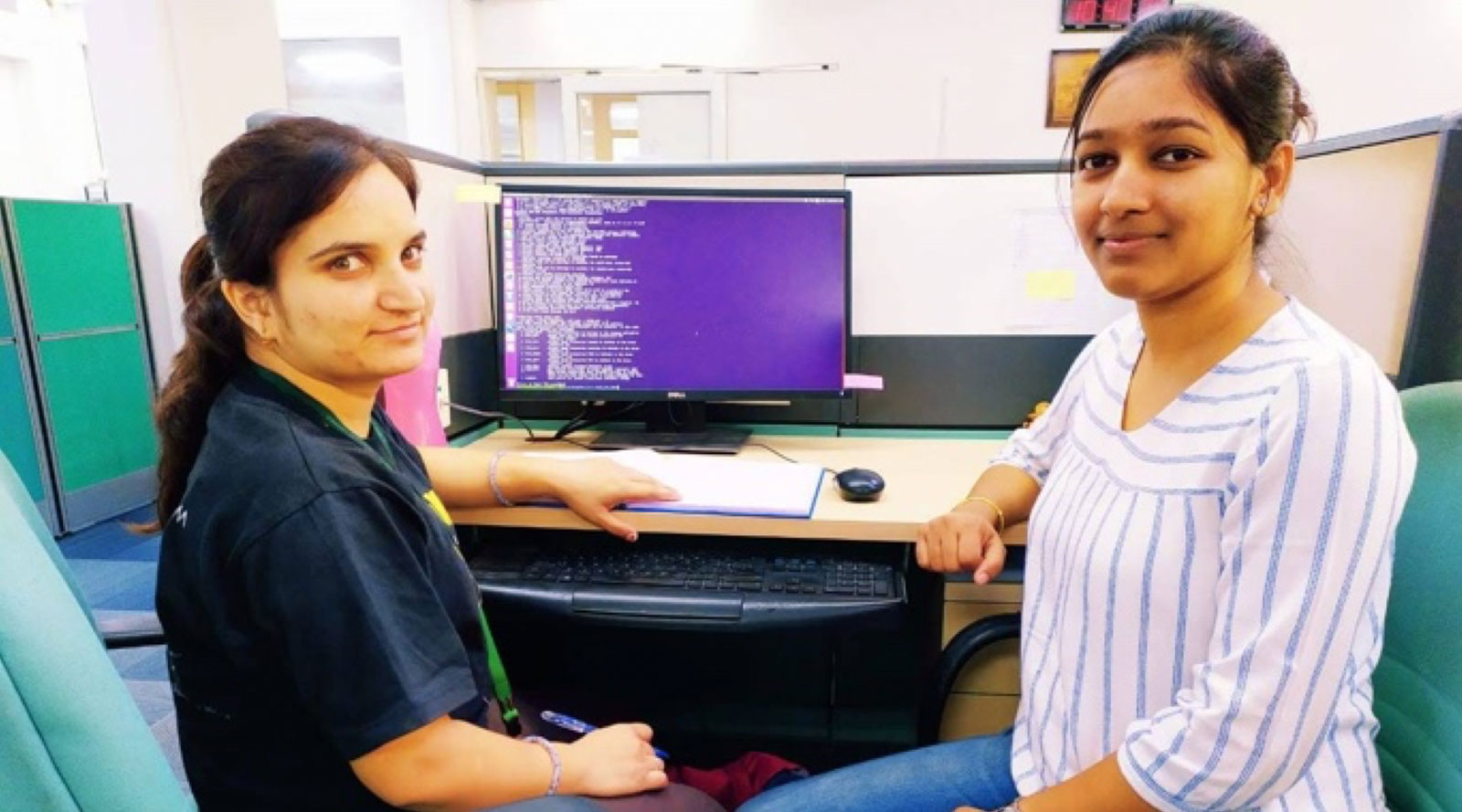

NextGen working on NextGen sequencing of chickpeas at ICRISAT
October 10, 2019
As part of our efforts to support and encourage young Australians in study, careers and volunteering in international agricultural research, the Crawford Fund State Committees proudly support our Student Awards.
Throughout the past year, we have enjoyed sharing the journey of our 2018 recipients of these Awards as they travelled to their host countries to research and explore their chosen topic areas and gain international agricultural research experience and expertise. We have almost heard from all of our 2018 recipients, and their experiences have been diverse and overwhelmingly positive. You can read more here, where we have featured the experiences of:
- Christian Berger from the University of Western Australia
- Thomas Noble from the Queensland University of Technology
- Luisa Olmo, Lucinda Dunn, and Marisa Mitchell from the University of Sydney
- Rachael Wood and Brooke Kaveney from Charles Sturt University
- Kimberly Pellosis and Ziyang Loh from the University of Melbourne
- Jessica Fearnley from the University of New England
- Jacinta Watkins from the Australian National University
- Tamaya Peressini and Daniel Cruz from the University of Queensland
- Mathu Indren from the University of Adelaide
- Samantha Nowland and Chieu Hoang Dinh from the University of Sunshine Coast
- Ruby Grantham and Jacqueline Lau from James Cook University
Thanks once again to The Crawford Fund QLD Committee, we share with you our latest summary of University of Southern Queensland PhD student Sonal Channale’s research experience with the International Crops Research Institute for the Semi-Arid Tropics (ICRISAT) in India.
Sonal Channale travelled to ICRISAT headquarters in Hyderabad, India from June to September 2019 to undertake research to identify root-lesion nematode resistance genes to help accelerate breeding for chickpea varieties resistant to the parasite, and thus contribute to increased yields, and ultimately increased profits for chickpea growers in Australia and other countries.

“With the help of the Crawford Fund Award, I was able to carry out part of my PhD work at one of India’s pioneering institutes in agriculture, ICRISAT, which is a global leader in the field of genomics, molecular breeding and physiology of chickpea. Researchers at ICRISAT have contributed immensely to the conversion of chickpea from an orphan crop into a genomic resource rich crop using Next Generation Sequencing technology,” said Sonal.
Chickpea (Cicer arietinum) is an important crop for Australian farming systems because it is a protein rich food, has a natural ability to fix nitrogen in soil for the crops grown in rotation and because of its export value. It is predominantly grown in the sub-tropical grain region of eastern Australia (central and southern Queensland and northern New South Wales).
However, chickpea productivity is affected by various pathogens. One such pathogen which feeds on chickpea roots is the worm-like parasitic nematode Pratylenchus thornei, known as root-lesion nematode (RLN). These microscopic nematodes cause lesions when they feed on host roots which results in the roots functioning less efficiently in the uptake of water and nutrients, and thereby affects the chickpea yield.
Most chickpea cultivars grown commercially in Australia are susceptible to P. thornei, resulting in yield losses of up to 20%, a significant reason to search for approaches to improve genetic resistance to RLN in chickpea. Pratylenchus thornei is a soil-borne pathogen, so it is difficult to eradicate it completely from infected fields. Current methods to control RLN infestation rely on integrated management strategies, including crop rotation and the use of tolerant and resistant cultivars.

“The approach undertaken in my study to protect chickpea from nematode attack was to identify candidate genes (key factors) for resistance to P. thornei using Next Generation Sequencing (NGS) technology and bioinformatics. NGS technology refers to the platform used for sequencing DNA and RNA molecules, which essentially refers to obtaining the blueprint of an organism. Bioinformatics is an interdisciplinary branch of science which uses software and tools to understand the biological data.”
The outcome of this study will help to improve the farming systems in Australia and other countries facing similar issues. It is imperative to address this issue, as Australia ranks first as chickpea exporter in the world and if the issue remains unaddressed, yearly losses of $18 M are forecast.
“The experimental design for the research that I conducted at ICRISAT involved challenging different chickpea lines with RLN in replicated glasshouse pot experiments, microscopic investigation of nematode infection and reproduction over time, followed by RNA profiling (using NGS technology) and bioinformatics. From this study I have been able to identify the difference in plant response between RLN resistant and susceptible chickpea lines at the genomic level,” said Sonal.
“I fully embraced the opportunities that the Crawford Fund Award provided me as a student with respect to building international ties, exchanging and enriching knowledge,” she said.

The outcomes of the study will be used for further development of markers which will act as diagnostic tools for the large-scale screening of RLN resistance sources and facilitate marker-assisted breeding for RLN resistance in chickpea. The development of molecular markers for RLN resistance genes will be valuable tools to assist chickpea breeding programs, not only in Australia but around the world wherever RLN is a threat to chickpea crops, to incorporate resistance into existing elite varieties.
“To the best of our knowledge, this study is the first attempt to address the RLN issue in chickpea with help of genomics and bioinformatics” said Sonal.
“This collaborative project strengthens the research links between University of Southern Queensland, Australia and International Crops Research Institute for the Semi-Arid Tropics ICRISAT, India. The knowledge generated from this project will foster ongoing Queensland – India engagement, as P. thornei is emerging as a serious threat to chickpea production in India.”
“I am grateful to the Crawford Fund as the platform for enabling me to develop the necessary skills to use various software and tools for bioinformatics data analysis. With this unique opportunity I was able to work in international environment and was able to interact with students and researchers working on different aspects of agriculture sustainability and market policies,” she concluded.
Sonal also acknowledged the International Stipend & Fees Research Scholarship from the University of Southern Queensland, and ICRISAT for their assistance with this project.
Sonal’s project also resulted in the publication of a journal article – Zwart, R. S., Thudi, M., Channale, S., Manchikatla, P. K., Varshney, R. K., & Thompson, J. P. (2019). Resistance to Plant-Parasitic Nematodes in Chickpea: Current Status and Future Perspectives. Frontiers in Plant Science, 10.




